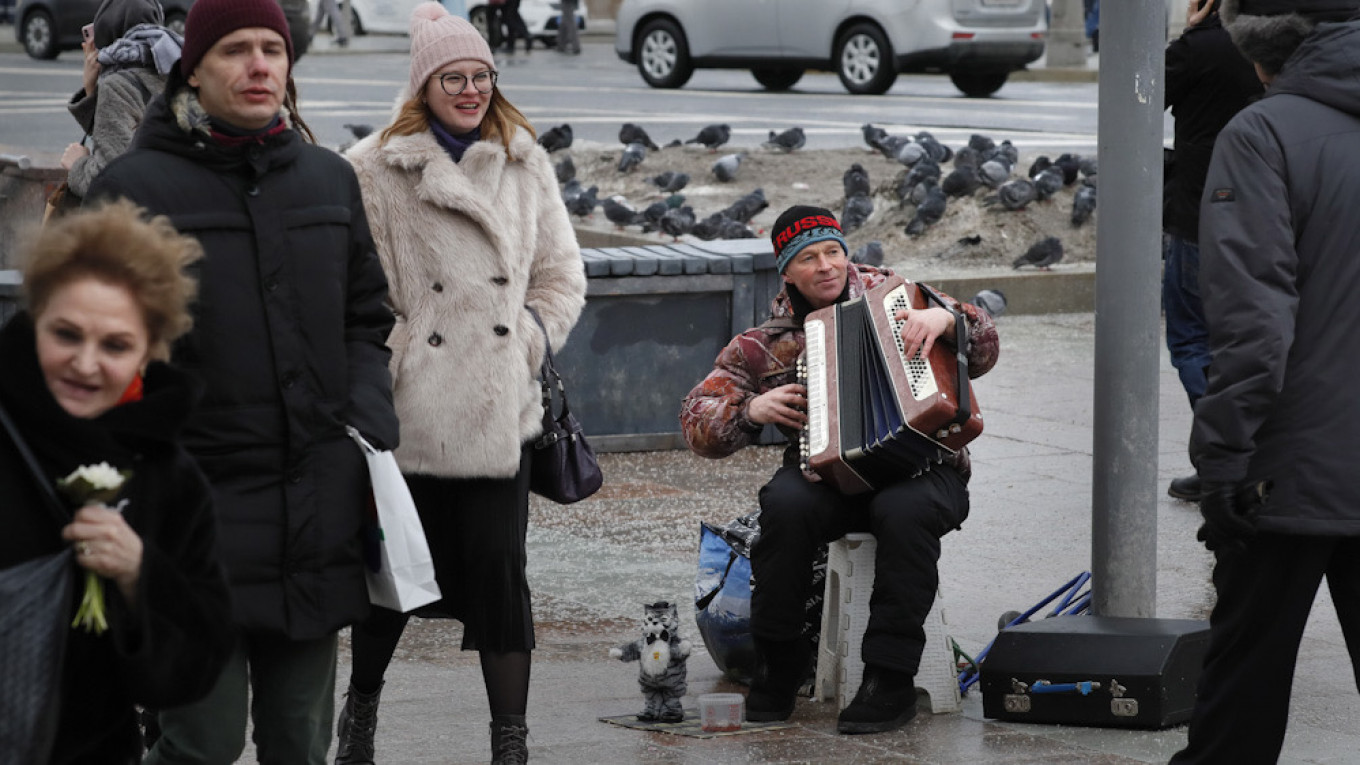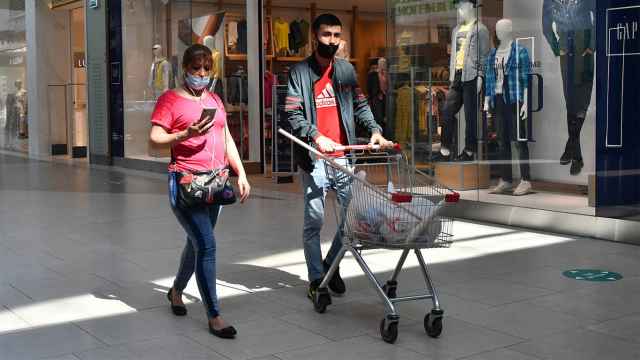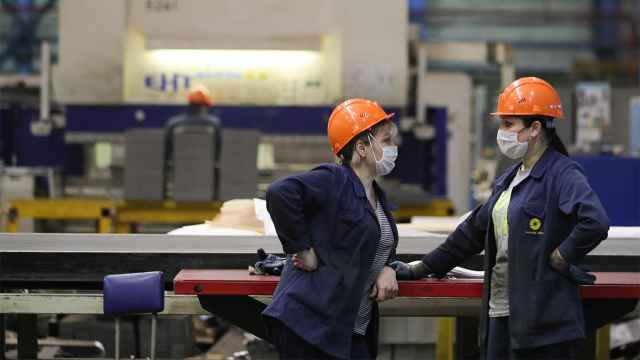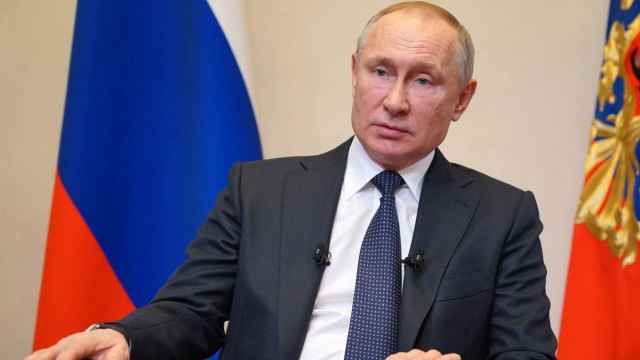The coronavirus pandemic pushed Russian living standards to their lowest level in a decade, new economic data published by the country’s statistics service Rosstat has shown.
Real disposable incomes — a closely tracked indicator of Russian households’ financial wellbeing — dropped by 3.5% in 2020, Rosstat found. They now stand more than 10% below levels recorded in 2013, the last year of solid growth before Russia’s annexation of Crimea and a slump in world oil prices pushed the economy into recession.
Slow growth in the years after that, as the Kremlin prioritized economic stability, led to continued hardship for families and the coronavirus pandemic has now pushed Russian households into their most precarious financial position in the last 10 years.
Economists said the government’s limited — but well-targeted — anti-coronavirus financial support helped soften the blow for the poorest families, although an extra 400,000 households fell below the poverty line last year, the RBC news website reported. The number of Russians now classified as living in poverty stands at 19.6 million.
Observers say years of economic stagnation has fostered rising discontent with the Kremlin, fueling the protest sentiment unleashed by Alexei Navalny’s arrest upon his return from Berlin.
Other economic data published Thursday showed the economy as a whole continued to beat expectations, registering smaller declines in output than analysts had predicted. The official unemployment rate fell below 6%, although economists say that is probably more connected with the government reducing unemployment benefits than a surge in job creation, and the true rate of joblessness is likely significantly higher.
Construction and agriculture were the only sectors of the economy to register growth in 2020, Rosstat said. Industrial production — which includes Russia’s vital oil and gas output — fell by 2.9%. Retail sales slumped by 4.1% across the year — hit hard by forced shop closures during Russia’s nationwide lockdown last spring. Unsurprisingly, the consumption of paid services — spending in places like restaurants, bars and hairdressers — fell the sharpest, registering a 17.3% drop over the year.
But Russia’s economy weathered the first year of the coronavirus crisis better than most developed economies and better than many first feared. The economic contraction is set to be among the world’s smallest, helped by the Kremlin’s rejection of imposing a second lockdown, even as virus rates, hospitalizations and deaths surged across the country.
But the recovery is also likely to be among the slowest, with few economists expecting a rapid bounceback since the government is keen to quickly recover its lost revenues by returning to a policy of austerity.
A Message from The Moscow Times:
Dear readers,
We are facing unprecedented challenges. Russia's Prosecutor General's Office has designated The Moscow Times as an "undesirable" organization, criminalizing our work and putting our staff at risk of prosecution. This follows our earlier unjust labeling as a "foreign agent."
These actions are direct attempts to silence independent journalism in Russia. The authorities claim our work "discredits the decisions of the Russian leadership." We see things differently: we strive to provide accurate, unbiased reporting on Russia.
We, the journalists of The Moscow Times, refuse to be silenced. But to continue our work, we need your help.
Your support, no matter how small, makes a world of difference. If you can, please support us monthly starting from just $2. It's quick to set up, and every contribution makes a significant impact.
By supporting The Moscow Times, you're defending open, independent journalism in the face of repression. Thank you for standing with us.
Remind me later.






